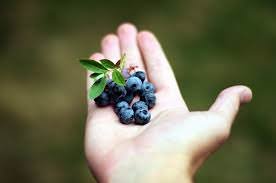 pixmio.com
pixmio.com
Most of us in the western world take our food supply for granted. We go to the local shops or supermarket, perhaps a few times a week, and we buy what we want or what we need. Most of us probably don’t think about where the food originated or how it got to us… We don’t really care so long as we can get what we want.
But of course it hasn’t always been like that in the history of our human species. Where we nowadays see a surfeit of food in the shops and markets our early ancestors would have had to work hard simply to get enough food to enable them to survive.
Over the centuries our food has changed and changed radically. Much of it now sold in supermarkets is processed and packaged so that it is more convenient for us and for the manufacturers. Packaged and processed food will keep for much longer than fresh but, it often has less nutritional value because it has been chemically altered by processing, and probably contains artificial colouring and flavouring agents which would never exist in natural foods. When you add into the equation the probable content from herbicides, pesticides, and hormones used in farming and agricultural production of food it is not hard to believe that this type of food is not good for us. Much processed food now also contains excessive amounts of salt and sugar, and the latter is bad for our teeth and our general health in such quantities.
Until early man started to plant seeds and grow grain plants like corn about 10,000 years ago there was only the food available which could be foraged, i.e. gathered from plants in the natural environment such as plant leaves, berries, nuts and roots. Some of our ancestors living by water learned to catch fish and some learned to hunt and kill animals. Evidence suggests, however, that early man was not very proficient at killing animals until the invention of the spear and bow and arrow.
The gradual widespread adoption of agriculture led to larger human settlements and those who remained nomadic were pushed out of farming areas to eventually become isolated in remote parts of the world, and today only a handful of hunter-gatherer tribes still survive.
The interesting thing though is that studies have strongly suggested that these early hunter-gatherers did not suffer from diseases such as diabetes or heart disease and in fact were healthier than many of us in western society are now.
This has led some to question our modern way of life and our modern diet in particular. There is a convincing argument that we would be generally healthier by adopting a diet more akin to that of the Stone Age with its emphasis on the simple natural foraged types of food and limited consumption of meat, plus the severe restriction ofall processed foods. One type of diet at present quite fashionable is the so-called “Paleo diet” which mimics that of the human paleolithic period –i.e. the 2.6 million years preceding the beginnings of agriculture; the argument being that we have not had sufficient time in evolutionary terms to adapt to our modern diet of processed and fast foods. Our physiology is still geared to the simpler diet of our ancestors. The apparent widespread increase in gluten intolerance and diseases like Crohn’s is cited as evidence.
I believe that there is some truth in this view but of course it’s totally impracticable and generally unpalatable for most of us to revert to such a primitive diet. I would suggest something of a compromise as being the best way for us to lead a healthy life in modern times – a diet such as the “Mediterranean” one is ideal, emphasizing the consumption of fresh foods and especially fish, lean meat, fruit, and vegetables. Good quality meat reared in the wild is a source of vitamins, minerals and protein but there is controversy about just how much meat we should be eating because of concerns over fat and cholesterol linked to cardiovascular disease.
Certainly there is evidence that our ancestors developed a liking for meat once it was discovered, and indeed it’s suggested that the superior density of energy in meat compared to plants was a major factor in the relatively fast increase in human brain size and capacity. The energy dense meat possibly allowed for smaller intestinal tracts and larger brains in carnivores compared with herbivores.
Probably the arrival of agriculture enabled the rapid increase in human populations because of the fairly predictable food supply but it did nothing to improve our health and level of fitness. Some would say that the swing towards manipulated livestocks and intensive farming, coupled with the mass adoption of food processing, has caused a downturn in human health over time, turning the leaner fitter hunter gatherer or farmer into the modern desk bound worker and couch potato...
Various studies indicate that humans as a species can live a healthy life on a varied diet depending on what’s available in their local environment - Some Indians have a totally vegetarian diet, the Inuits or Eskimos have traditionally had only fish and whale meat, whilst an African tribe that keeps cattle drinks their blood, and a group in the Nicobar islands off India get by mostly on just insects...
The one thing that all these diets have in common is they are natural, unadulterated and not processed with added chemicals or sugar and salt… like:
 source pexels.com
source pexels.com
The weight of evidence seems to me to clearly point to a varied diet made up mostly of fresh food to be ideal for us humans to follow in this day and age in order to stay healthy and thus realise our full potential in life
Nice
Quite a historical aspect of our food habit and it's changes pattern from our ancestors to us. Your this line is a really important thing to be considered :
When we will start avoiding that processed food, we start becoming healthy again :)

Congratulations @bestofhealth! You have completed some achievement on Steemit and have been rewarded with new badge(s) :
Click on any badge to view your own Board of Honor on SteemitBoard.
For more information about SteemitBoard, click here
If you no longer want to receive notifications, reply to this comment with the word
STOP